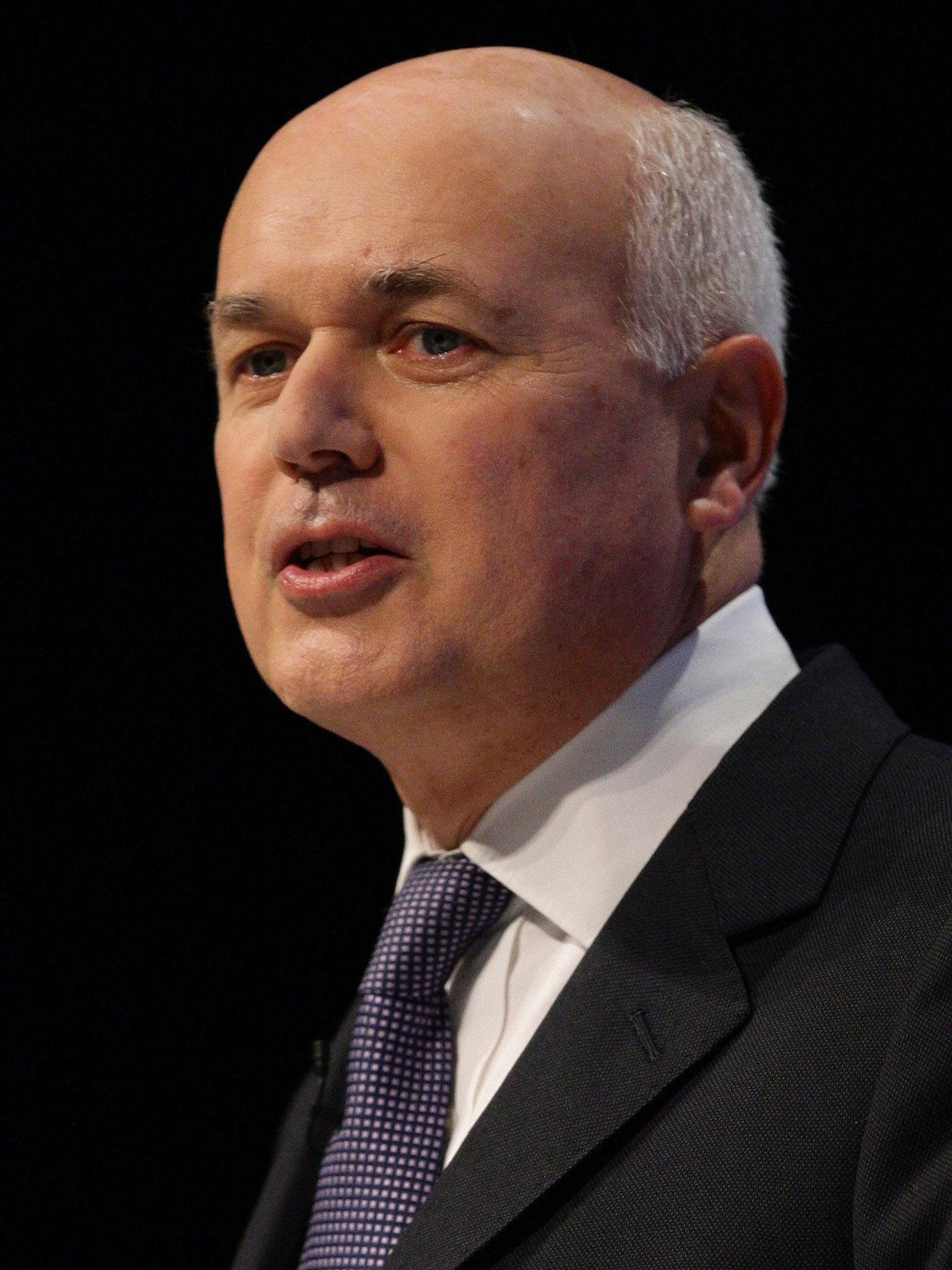New Universal Credit benefits system to miss 2017 deadline, admit ministers
Around 700,000 claimants will not transfer to the new system until 2018 at the earliest, Department of Work and Pensions admits

Nearly three quarters of a million people will not move onto the Government’s controversial new benefits system by 2017, ministers admitted on Thursday, because of multiple failures that have left Universal Credit over budget and behind schedule.
The Work and Pensions Secretary Iain Duncan Smith was accused of attempting to hide the bad news by announcing the delay at the same time as the Autumn Statement.
Just last month he told Parliament that he would “roll out universal credit on the plan and programme” he had always maintained by 2017.
But on Thursday the Department admitted about 700,000 claimants of Employment and Support Allowance would not transfer to the new system until 2018 at the earliest.
A source close to Mr Duncan Smith suggested that earlier targets set by the department may have been unrealistic.
“We don’t want to be held hostage to previous figures and targets,” they said. “We need to get this right.”
Mr Duncan Smith told the BBC: “We may take a little longer on those who are already in, say, ESA, who have no work requirement on them because they are a very vulnerable group.
“(We) may say we want to take a little more time on them because they need to be processed carefully and dealt with carefully.
“But essentially Universal Credit as a benefit will be the benefit by 2016 and the remains of the vast, vast majority of the stock will be in place pretty much by the end of 2017.”
The reforms, which have been personally championed by Mr Duncan Smith in the face of scepticism from the Treasury, represent perhaps the biggest change to the welfare state since its inception.
Universal Credit brings together six benefits and tax credits into one single payment. But its roll-out has been bedevilled by repeated IT failures, delays and reluctance by Mr Duncan Smith to admit to problems with the scheme.
On Thursday night DWP officials were not able to give a cost for introducing new IT systems or the right-off on now shelved IT systems – but these are expected to be published in the next couple of weeks.
Shadow work and pensions secretary Rachel Reeves said: "On the morning of the Autumn Statement this is yet another shambolic announcement from this out-of-touch Government.
“Iain Duncan Smith has today admitted what everyone has known for months - that Universal Credit is massively behind schedule. “But just a couple of weeks ago he was telling Parliament the Government would 'roll out Universal Credit on the plan and programme already set out'.
“It's clear that David Cameron and Iain Duncan Smith have completely failed to get to grips with their flagship welfare reform and millions of pounds of taxpayers' money have been written off as a result.”
Mr Duncan Smith is expected to be questioned about the latest delay when he appears before the Work and Pensions Select Committee on Monday.
He is likely to argue that the majority of those people not being transferred to Universal Credit by 2017 were previously on Disability Living Allowance payments but who have been migrated onto Employment and Support Allowance.
He will argue that the Department was listening to critics who claimed that these people had already had “enough upheaval” and that the delay was in order to let UC settle down before transferring them onto the new payments at some stage in the future.
Join our commenting forum
Join thought-provoking conversations, follow other Independent readers and see their replies
0Comments